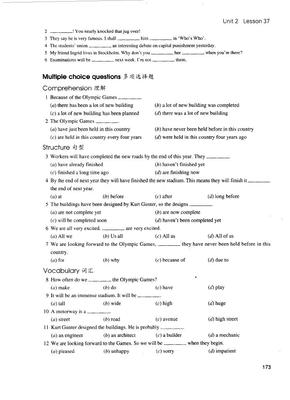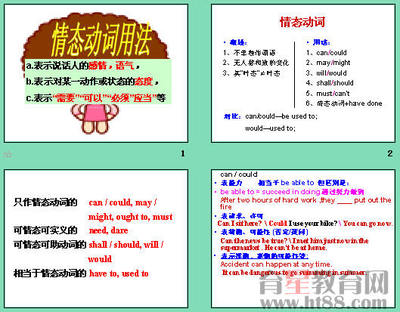I shall be twelve years old next month.

He will be twelve years old next month.
不過,在現代英語(特別是美式英語),人們往往以I will取代I shall。
除了表示「將會」,兩個字還有其他涵義。Will表示說話者的意願,例如:I will follow you。Shall則表示說話者的承諾和決心,如:One day you shall know the truth。二次大戰時,美國麥克阿瑟將軍在太平洋防禦失利,被迫撤離菲律賓,離開時他發誓說:I shall return,後來他果然擊退日軍,光復馬尼拉。
Shall也用於命令或法令,如:《聖經》十誡中的Thou shalt not kill(Thou shalt即現代英語的You shall)、The contract shall take effect on 1 January 2010。以第一人稱徵求意見,例如:「Shall we dance?」或「Shall I make you some coffee?」,這些時候應該用shall,不能說「Will we... ?」或「Will I... ?」。
Should是shall的過去式,主要用於轉述句,如:The teacher said that we should sit for the examination this Friday,但非過去式的用法更常見。最常見的解釋為「應該」,與ought to近義,例如You should work harder意謂「(現在)你應該努力一點」;若要表達「當初你應努力一點」的意思,應說You should have worked harder。
Should也可表示推測:She should arrive soon。Should用於條件句,表示前提發生的可能較低,可理解成中文的「萬一」,例如:「If you should require assistance, please just ask」;或採用倒裝句法:「Should you require assistance, please just ask」。這對字詞的關係近似之前討論過的can/could和 may/might。Would不僅是will的過去式,也常用於禮貌語,例如:
問:Would you be kind enough to show me the way?
答:I'd be glad to.
Would用於條件句,通常表示不會或沒有發生的情
 爱华网
爱华网



